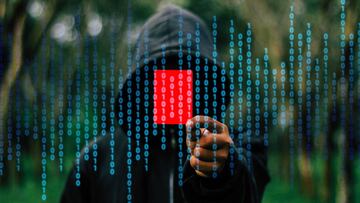Cybersecurity
What is doxxing? Tips to avoid it and how to protect yourself
Online security is a constant concern for many users, and understanding threats can help to protect yourself. Here’s everything you need to know about Doxxing.

No matter who you are, privacy will always be one of your main concerns and priorities, especially when going into the internet. As such, threats to that privacy and anonymity are ever present, with a specific attack on exactly that being Doxxing. Perhaps you’ve heard of it or not, but the fact remains that it’s a dangerous situation that you can only take steps to protect yourself from.
What is Doxxing?
The term “doxxing/doxing”, derived from the term “dropping docs” (documents), refers to the practice of publicly revealing private, personal information about an individual without their consent. This information can include addresses, phone numbers, email addresses, social security numbers, and more. Doxxing is often intended to harass, intimidate, or harm the targeted person.
Usually, the entire point of doxxing is to harm a specific user by damaging their reputation, revealing personal photos or messaging history. However, as it involves all kinds of personal information it can also result in the release of details that put a person in real, physical harm. Things like your home address, banking accounts and data, and personal relationships could be unveiled for anyone to see.
How does Doxxing work?
Doxxing typically involves several steps:
- Gathering Information: The doxxer starts by collecting pieces of information about the target. This can be done through various means such as social media profiles, online forums, public records, and even hacking.
- Connecting the Dots: The doxxer then pieces together the information to build a comprehensive profile of the target. For example, a seemingly innocuous Facebook post about a high school reunion could reveal someone’s hometown, which can be cross-referenced with other data.
- Public Disclosure: Once sufficient information is gathered, the doxxer publishes it online, often on platforms frequented by many people to maximize exposure and potential harm.

How can you protect yourself?
Protecting yourself against doxxing involves a combination of careful online behavior and utilizing security tools. Here are some practical tips:
- Limit Personal Information Online: Be cautious about what you share on social media and other online platforms. Avoid posting your home address, phone number, or other sensitive information.
- Use Privacy Settings: Ensure your social media profiles are set to private and review your privacy settings regularly. Limit who can see your posts and personal details.
- Use Strong, Unique Passwords: Create strong passwords for your online accounts and use a different password for each one. Consider using a password manager to keep track of them.
- Enable Two-Factor Authentication (2FA): Adding an extra layer of security to your accounts with 2FA can help protect them from being hacked. This typically involves receiving a code on your phone in addition to entering your password.
- Be Wary of Phishing Scams: Be cautious of unsolicited emails or messages asking for personal information. Always verify the identity of the sender before providing any details.
- Use a Virtual Private Network (VPN): A VPN can help protect your online activity and make it harder for doxxers to track your IP address and location.
- Regularly Monitor Your Online Presence: Search for your name regularly to see what information about you is publicly available. If you find any sensitive information, take steps to have it removed if possible.
- Educate Yourself About Cybersecurity: Stay informed about the latest cybersecurity threats and best practices. This will help you stay one step ahead of potential doxxers.


